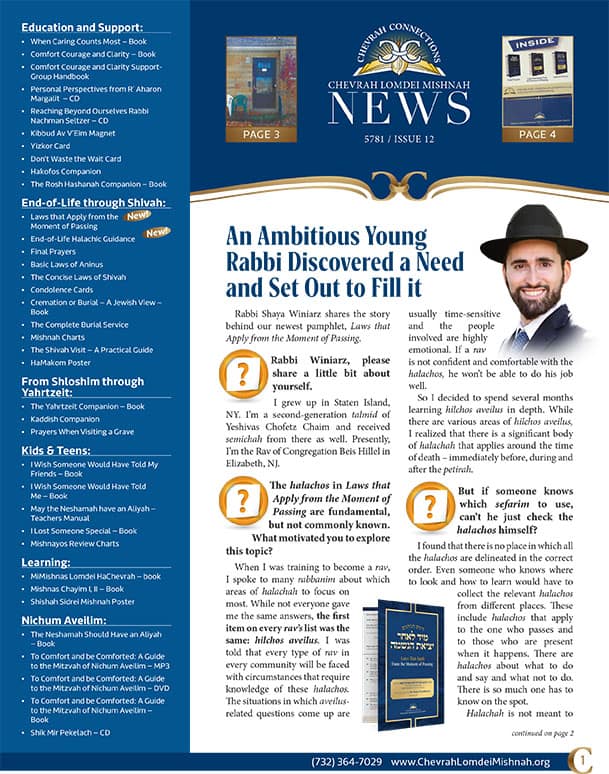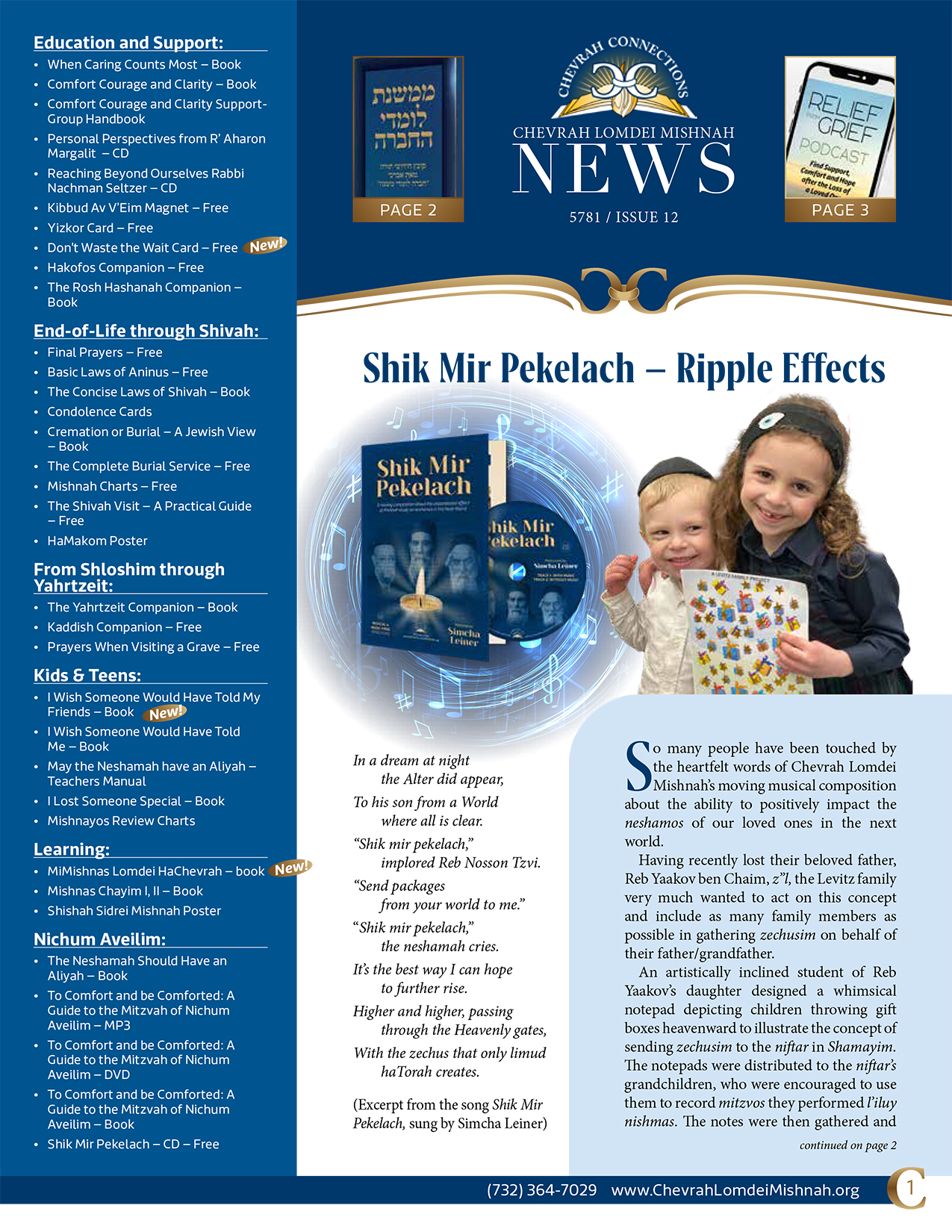Dear Friends,
Rosh Hashanah is almost upon us; a new year, a new beginning. The Hebrew term for ‘year’ – ‘shanah’ is similar to the word for change ‘shinui’. And interesting to note, the Hebrew term for ‘month’- ‘chodesh’, is related to the word ‘new’- ‘chadash’. We now have the opportunity to change ourselves, renew ourselves, even recreate ourselves, if you will.
Neuroscientists are reporting that due to neuroplasticity, the malleability of the brain’s organization and wiring, we do have the capabilities of changing our brains. As Sarah Chana Radcliff discusses in familyfirst Jan 29, 2014, “The trick lies in repetition- the slow methodical building of new neural structures.” We can learn to reframe situations, we can change our approach to life and life’s circumstances. Let me share with you several concepts that may help us reorient ourselves to life’s challenges.
Rabbi Paysach Krohn teaches us that we make the blessing every morning, “l’havchin bein yom u’vein lailah,”.. to acknowledge the distinction between day and night. Each night does eventually end, presenting us with a new beginning, a new potential for blessing, a better day. If today is difficult, hopefully, G-d willing, tomorrow is another day, a new day.
There is a familiar concept in Judaism, ‘Maasesh avos siman labonim’- The actions of our Forefathers are a foreshadowing for the children.. Our fathers are leading the way, teaching by example. Do you recall when Yaakov wrestled with the angel, when he fled from his home, from the wrath of his brother Esav? Yaakov refused to release the angel until the angel had blessed him. Sherrie Wise in the Ami Magazine, Aug, 2013, referring to the tragic passing of her adult son, discusses this episode and informs us..”He (Yaakov) would not let go until he was able to transform it into a blessing. So too must we emulate his obstinacy and reliance and tell ourselves, ‘I will not give up until I have extracted something positive from the pain and turned it into a blessing.’ ”
This summer was a terribly difficult one for Israel. Jews across the globe were united in their prayers. Our attention was directed towards Israel, our hopes and our dreams. Mrs. Rachel Frankel, the incredibly courageous woman, the mother of Naftali, who was killed together with his two friends, presented on Aish.com this past week. She shared that those 18 days that the boys were missing were the darkest hours, but also the most amazing hours-for she discovered the strength and unity of our people. She concludes her comments, saying, “We went searching for our boys, and we discovered ourselves.” You and I, we are part of an entity much greater than ourselves. We are part of an eternal nation, the nation of Israel. There is power, strength, a potential that lies within each of us just waiting to be tapped.
Judging our neighbors favorably is a major tenet of our Torah. Explains Eytan Kobre in Mishpacha, May 7, 2014, “Different mitzvos call upon the use of diverse aspects of ourselves, some requiring application of intellect, others physical exertion or emotional commitment. This one asks of us to employ a combination of deductive reasoning, creative thinking, and a healthy imagination to explain and to contextualize the seemingly surprising or inappropriate behavior of others.” What he presents to us is the fact that we must judge G-d favorably also! We must trust that there is an eternal plan that we are simply not privy to. As it states in Isaiah 55;8, “Lo machshevosai machshevoseichem… My thoughts are not your thoughts. “ As mere mortals, we are simply unable to comprehend life’s events. Asking why is not helpful. What is helpful is to do our utmost to strengthen our relation with G-d and with the people in our lives.
Rav Yecheskel Abramsky zt’l presents us with a powerful analogy. Our generation is comparable to a ship in stormy water, with enormous waves threatening to capsize the boat any moment. Time and time again the ship miraculously survives, whilst the passengers wait impatiently within the ship, ill at ease, rather frantic. As their long journey nears its end, the passengers began to despair, having lost hope, claiming to have no more strength to carry on. Out comes the captain who implores them to take courage. “You’ve survived for so long, the journey’s almost over, soon we’ll be in safe territory. Don’t give up now!” So we have suffered in this long exile of ours. All we have to do is hang on a bit longer, we’re almost there!!!
During these holidays, literally holy days, Birchas Kohanim, the Priestly Benediction, will be recited in our shules. These blessings, although they’re directed towards the entire general community, are recited in the singular tense. Why is that? Each of us is being blessed with personal inner peace, with equilibrium, with ‘menuchas hanefesh’, tranquility. That’s a pretty powerful blessing.
As we enter the new year, writing a new chapter in our life’s journey, I wish for all serenity and equanimity. May the new year shower us with sweetness. Ksiva v’chasima tova. May we all be written and sealed for a good year, a happy year. And may we only share the happiest of tidings.
Very best to all,
Miriam Leibermann











